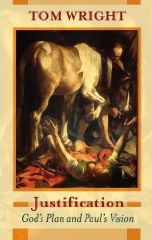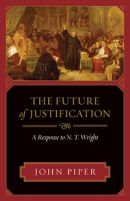“For we are his workmanship, created in Christ Jesus for good works, which God prepared beforehand, that we should walk in them.” – Ephesians 2:10
 I have had a couple of conversations recently in which I noticed a certain idea being articulated as it related to the person’s life circumstances and God’s role in it all: that is that God, after we believe in Him, trusts us to build His Kingdom. And from the relationship perspective, that God trusts us to go through trials. Most people might brush aside such a thought as a simple notion that gives no weight to what one savingly believes concerning God; or bringing it down to a practical level, how that idea affects everyday life and practice. However, I personally believe it is quite a revealing notion about the way in which many are beginning to view God’s role in bringing us to Himself and making us more like Christ.
I have had a couple of conversations recently in which I noticed a certain idea being articulated as it related to the person’s life circumstances and God’s role in it all: that is that God, after we believe in Him, trusts us to build His Kingdom. And from the relationship perspective, that God trusts us to go through trials. Most people might brush aside such a thought as a simple notion that gives no weight to what one savingly believes concerning God; or bringing it down to a practical level, how that idea affects everyday life and practice. However, I personally believe it is quite a revealing notion about the way in which many are beginning to view God’s role in bringing us to Himself and making us more like Christ.
I have a hunch I know where this idea is coming from, an idea that I believe to be quite injurious to the Church; if not immediately, maybe on down the line as people pick up on it more and more, particularly in youth groups around the nation, whose members then grow up to be adults a decade from now.
There was an article written by Dale Van Dyke a few years ago that reviews Rob Bell’s book Velvet Elvis: Repainting the Christian Faith. In it, Van Dyke points out a particular quote from Bell’s book on pg. 134 where Bell states (in no uncertain terms I might add, which I find ironic at a belief system level … but I digress), “[Jesus] 1/4 left the future of the movement (the church) in [the disciples] hands. And he doesn’t stick around to make sure they don’t screw it up. He’s gone. He trusts that they can actually do it.”
Now before continuing, I would like to quote Van Dyke’s own preface to his review that I think is appropriate here as well: “I believe that Rob Bell is well intentioned. He is passionate about helping Christians break out of the drudgery of a tired, traditional religion into a vibrant, culture-transforming relationship with Christ. He earnestly desires to help people live out the commands of Christ. This is commendable and explains in large part his appeal to the largely churched Grand Rapids community.” I totally agree and have seen some of the good that Bell has done locally, through a few videos, coupled with some leaders who shared the Gospel, in (at the very least) helping a few people come to believe in Christ and are now off at college and vibrant in their faith.
However, even small ideas that may seem minute at the moment can have eventual catastrophic effects down the road, maybe not within the immediate generation (though I believe we’re already seeing the effects in some ways), but what about 10, 20, 30 years from now when our youth groups are all grown up, taking these ideas we’re giving them, that we’ll be held accountable for on judgment day?
There are several presuppositions in this quote of Bell’s that are contrary to the text of Scripture, however, that may not be obvious on first glance. Something may not sound right to you, but your not quite sure what it is. Here are a few I noticed, if it helps at all, though by no means is it exhaustive of everything Bell would have to say; in addition, he may very well not be intending it though, I believe they are unavoidable in the language he uses:
1) that implicit in this idea of God trusting Kingdom work (or trials) to His disciples (even 1/4 of it), God is not directing the course of history sovereignly for His own glory and purposes which is so clear in the Old Testament quotes of God Himself;
2) that there are things that could potentially thwart God’s purposes if the Kingdom is left in the hands of sinners and God is hands-off even a 25%, to one degree or another;
3) that man is capable in himself of carrying out God’s eternal plans;
4) Jesus is not providing the constant power, ability and will (a gift purchased and secured at the cross) to carry out the very things in His people that He wills to come to pass in His Kingdom.
This is ultimately a denial of God’s over-arching sovereignty in creating and acting in the way that He does to bring glory to Himself, from beginning of creation, to redemption, to the end, the ultimate purpose of creation and even more specifically, salvation. Now I would not say Bell himself supscribes to an outright rejection of God’s sovereignty, but those listening to his teaching sure might.
All of this adds up to what I see as a misapprehension of the theology of the Kingdom of God. Who does what in the Kingdom? What is God’s role and our role? Is it something we build for God or that is God’s to build Himself, using us as His instruments? I would argue the latter.
Now I will confess that some believers can carry around these ideas while inconsistently believing at the same time that God is sovereign over their lives. At some level, we all inconsistently believe something that is amiss from the Gospel, which always inevitably results in sin, a turning away from the glory of God, as Paul defines it in Romans and other places. But that’s not to say that these beliefs do not go without their necessary and undesired effects in our lives and even relationships with God. This point is no different. However, missing this point can result in a dramatic shift from the overarching premises of the Bible, which ultimately affects our Gospel message that we are preaching to a dying world who does not know Him. All that to say, this is very important.
Dale Van Dyke has an excellent insight on Bell’s statement above as to what is wrong with this idea that I think further drives this home: “This is a profound and poisonous reinterpretation of the relationship between God and man. When the gospel becomes the message of God coming to earth and dying on a cross to help men realize how great they really are – something is horribly amiss. A teaching that claims that God trusts his glory and sovereign purposes to the abilities of sinful man has the stench of blasphemy.”
This is ultimately the presupposition that is subtly being subverted, if not explicitly then (maybe, without knowing it) implicitly, by adopting the postmodern ethos that we live and breathe in our culture on a constant basis: that man is in such desperate need of being saved because of the depravity and blindness of his soul, that Christ had to actually set aside His glory for a time, embody Himself as a man that could die (like any one of us), and do what we could not by living a life by God’s standards, in perfect obedience, on our behalf, which He then offers as a ransom for us sinners who could in no way lift a finger to save ourselves, by turning away the wrath of God and removing all hindrances from us through His atoning blood, rising from the dead in power, and then infallibly crediting our accounts with His excellent Gospel-work by raising us from among the spiritually dead in the unfolding of time, simply because He loved us and knew we were utterly helpless in our sin.
You are telling me Jesus did all of that simply to go back to heaven, leaving the future of His Kingdom in our sinfully marred, messed up hands, that without His grace, will run to shed innocent blood with the motives of our hearts every day in one way or another? I don’t think so. Rather, maybe it is that God Himself creates in us a faith that wasn’t there by the work of the cross, applied by the Spirit, who gives and then sustains that power in us to carry out all He has required and decreed from eternity (Ephesians 2:10)?
Maybe it’s not so much that God trusts us to get His work done without Him because we’re sufficient in ourselves for the task (which I thought the Christian life was all about humbly submitting ourselves to Him and relying on Him with and for our everything … well what does that actually entail?). But maybe it’s that God effectively and actively intervenes at every point in our lives, from the ground up, intimately and intricately involving Himself in all of it, in such a way that He receives all the glory, by granting us the ability, power, desire, and strength to carry out what He has sovereignly ordained would come to pass from the foundation of the world?
Bell’s statement, while I have no doubt is well-intentioned, subtly negates the all-sufficiency, omnipotence, sovereignty, and eternally effective love of Christ to build His Kingdom, something that in all reality we’re not doing really in the first place. We are merely recipients of His working and doing. It’s His work to build His Kingdom, not ours. Now we are active participants yes, only by God’s decree, yet God does the supernatural work of raising souls from the dead among us. We are merely instruments in the Redeemer’s hands, created to be used by Him in humble submission to His will, not ours and our various flawed, man-centered agendas that would surely hinder the Kingdom if left up to us.
David Well’s puts it so eloquently in His book The Courage to Be Protestant on pg. 196: “God’s inbreaking, saving, vanquishing rule is his from first to last. It has no human analogues, no duplicates, no parallels, and no surrogates. It allows of no human synergism. The inbreaking of the ‘age to come’ into our world is accomplished by God alone. This is all about the spirituality that is from ‘above’ and not at all about that which is from ‘below.’ It is about God reaching down in grace and doing for sinners what they cannot do for themselves. For if this is God’s kingdom, his rule, the sphere of his sovereignty, then it is not for us to take or to establish. We receive, we do not take; we enter, but we do not seize. We come as subjects in his kingdom, not as sovereigns in our own.”
Well’s, on the same page, also says, “We can search for the kingdom of God, pray for it, and look for it, for example, but only God can bring it about (Luke 12:31; 23:51; Matt. 6:10, 33). The kingdom is God’s to give and take away. It is ours only to enter and accept (Matt. 21:43; Luke 12:32). We can inherit it, possess it, or refuse to enter it, but it is not ours to build and we can never destroy it (Matt 25:34: Luke 10:11). We can work for the kingdom, but we can never act upon it. We can preach it, but it is God’s to establish (Matt 10:7; Luke 10:9; 12:32).”
And this right here is a case in point of why in no way can we make the Gospel more attractive to the culture by stripping certain doctrines because they are offensive. What you are left with is not the Gospel, but another religion, which again, is ironic for a movement that hates religion. Atonement, the sinfulness of man (you know, the actual doctrine, not the stripped down version), grace, predestination, the reality of hell. If you strip these from Scripture, what you wind up with is not authentic Christianity, but rather a man-made appearance of something that looks like Christianity, using the same lingo, but falls infinitely short of the Biblical Gospel and is in fact a false gospel, according to Paul.
This message of the cross is an offense to the Jew and the Greek, remember? Well, this Western postmodern culture is of Grecian philosophical descent. Greeks think the Gospel is nonsensical foolishness, based on Paul’s statements in 1 Corinthians 1 and 2. Just ask any number of the new atheists like Hitchens or Dawkins and they will fill you in. You cannot strip the doctrines and demands for faith and repentance in the Gospel, for you will be left with no Gospel at all in the end.
In one of the particular conversations I mentioned earlier, the person had gone through some very difficult circumstances recently, none of which I am unsympathetic to by the way. In no way do I question the person seeing and experiencing God at work in it or their own personal beliefs concerning the Gospel. I would say based on that conversation they love Christ even more as a result. However, the person made the statement that it was cool to see that God would “trust us enough that He would let us go through trials.” And as I thought on that statement later, I couldn’t help but think that in no way does God trust me to go through a trial. Is that not the reason God interposed His blood for me and sustains me with His grace, namely because I couldn’t do it at all myself without Him?
Rather, God sovereignly let’s me go through trials and in the midst of it stokes and sustains my faith by His power alone, in such a way that He gets all the glory for all of the working and I get changed into the image of Christ in the process. If God trusted me with my trials, to uphold my faith, without His sustaining power in me, knowing just an inkling of the deceit of my own heart (and based on Scriptures diagnosis of my own heart in Isaiah 64:6), I would walk away from Christ for sure and betray the Kingdom. I love Him because He first loved me and it is that very reality that keeps me attached to Him and it is He that sustains that reality in me.
Bell’s assessment simply misapprehends the depravity of man, the sovereignty of God and the power of Christ’s saving work. And ultimately it eclipses the glory of God, which is the whole point of all creation and the work of salvation to start with. If this is not plain to you, I ask that you think through why God does what He does in anything, from creating, to permitting sin and evil and trials (without being complicit in it of course, a mystery indeed), to redemption. Is it because His modus operandi is to make much of us, or Himself, the most valuable One in all the universe that demands to be praised, because to do less is to dishonor Him? We would all do well to pay attention to what we have seen and heard lest we too become deceived by the working of Satan in attempting to derail the Church. What we need to see and hear more of is the Gospel. And the place we see it is in Scripture, prayer and fellowship. Error always starts out small and then grows, like a festering wound that will ultimately poison your blood and kill you off.

 In speaking of N.T. Wright’s new book, Justification: God’s Plan and Paul’s Vision, responding to and critiquing Piper’s defense of justification, entitled, The Future of Justification, itself critiquing Wright’s understanding of justification, McLaren says, “John Piper, it turns out, has done us all a wonderful favor. In writing the critique that invited this response, he has given Bishop Wright the opportunity to clearly, directly, passionately and concisely summarize many of the key themes of his still-in-process yet already historic scholarly and pastoral project. Wright shows–convincingly–how the comprehensive view of Paul, Romans, justification, Jesus, and the Christian life and mission that he has helped articulate embraces ‘both the truths the Reformers were eager to set forth and also the truths which, in their eagerness, they sidelined.’ Eavesdropping on this conversation will help readers who are new to Wright get into the main themes of his work and the important conversation of which it is a part. And it will give Wright’s critics a clearer sense than ever of what they are rejecting when they cling to their cherished old wineskins of conventional thought.” —Brian McLaren, author A Generous Orthodoxy
In speaking of N.T. Wright’s new book, Justification: God’s Plan and Paul’s Vision, responding to and critiquing Piper’s defense of justification, entitled, The Future of Justification, itself critiquing Wright’s understanding of justification, McLaren says, “John Piper, it turns out, has done us all a wonderful favor. In writing the critique that invited this response, he has given Bishop Wright the opportunity to clearly, directly, passionately and concisely summarize many of the key themes of his still-in-process yet already historic scholarly and pastoral project. Wright shows–convincingly–how the comprehensive view of Paul, Romans, justification, Jesus, and the Christian life and mission that he has helped articulate embraces ‘both the truths the Reformers were eager to set forth and also the truths which, in their eagerness, they sidelined.’ Eavesdropping on this conversation will help readers who are new to Wright get into the main themes of his work and the important conversation of which it is a part. And it will give Wright’s critics a clearer sense than ever of what they are rejecting when they cling to their cherished old wineskins of conventional thought.” —Brian McLaren, author A Generous Orthodoxy

 I have had a couple of conversations recently in which I noticed a certain idea being articulated as it related to the person’s life circumstances and God’s role in it all: that is that God, after we believe in Him, trusts us to build His Kingdom. And from the relationship perspective, that God trusts us to go through trials. Most people might brush aside such a thought as a simple notion that gives no weight to what one savingly believes concerning God; or bringing it down to a practical level, how that idea affects everyday life and practice. However, I personally believe it is quite a revealing notion about the way in which many are beginning to view God’s role in bringing us to Himself and making us more like Christ.
I have had a couple of conversations recently in which I noticed a certain idea being articulated as it related to the person’s life circumstances and God’s role in it all: that is that God, after we believe in Him, trusts us to build His Kingdom. And from the relationship perspective, that God trusts us to go through trials. Most people might brush aside such a thought as a simple notion that gives no weight to what one savingly believes concerning God; or bringing it down to a practical level, how that idea affects everyday life and practice. However, I personally believe it is quite a revealing notion about the way in which many are beginning to view God’s role in bringing us to Himself and making us more like Christ.
Thoughts on the Day After an Historic Election – James White
By David Westerfield
On November 7, 2008
In Apologetics, Christian Culture, Culture, Politics, Theology, Video